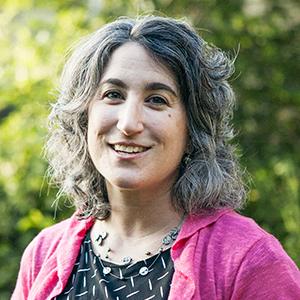Due to our fundamental belief in the sanctity of life and the Jewish value of kavod ha’briyot, respect for human dignity, Reform Judaism holds that abortion is both a medical and spiritual decision and that the decision to terminate a pregnancy is one that, in all circumstances, should ultimately be made by the individual within whose body the fetus is growing.
While that individual may understandably seek the advice and guidance of physicians, clergy, therapists, and family members who can offer information and support, Reform Judaism believes the pregnant individual should maintain absolute autonomy over their body.
We believe that life is sacred and that the life and well-being of an existing life must be prioritized over the possibility of potential life – beliefs that are grounded in careful reading of Jewish text and tradition.
Centuries ago, the Talmud concluded that the life of the mother always takes precedence over the fetus, teaching, “[If] a woman who was having trouble giving birth...her life comes before its life.” (Mishneh Ohalot 7:6). Therefore, abortion must be performed in cases when the pregnancy threatens the life of the mother. (Per Mishnah Ohalot 7:6-8, the fetus is considered a human person with equal status as the birth parent only from the moment when the head emerges from the birth canal.)
It bears repeating, however, that Reform Judaism holds that pregnant individuals should have complete responsibility and autonomy over whether to terminate a pregnancy – whether or not that individual’s life is at risk.
Grounded in these affirmations of moral agency, Reform Jewish organizations have long held strong policy in favor of accessible reproductive health care and advocating for reproductive rights:
- In a 1935 resolution, Women of Reform Judaism (WRJ) expressed support for the lifting of bans on the dissemination of birth control literature. The Central Conference of American Rabbis (CCAR) followed with a 1947 resolution on birth control, followed by a Union for Reform Judaism (URJ) resolution in 1950.
- The URJ continued its commitment to advocating for reproductive health care access and rights with resolutions passed in 1967, 1975, 1981, and 1990, stating in 1975 that "in any decision whether or not to terminate a pregnancy, the individual family or woman must weigh the tradition as she struggles to formulate her own religious and moral criteria to reach her own personal decision....We oppose all constitutional amendments that would abridge or circumscribe this right."
- Similarly, in 1965, WRJ passed a resolution on “Judaism and the Family,” which says, "We appeal for liberalization of the abortion laws of the various States and urge our United States constituents to work toward this end." The Central Conference of American Rabbis went on record in 1967, 1975, 1980, 1984, 1994, 1995, 2008, and 2017 to affirm the "right to terminate a pregnancy" and stating that the CCAR "opposes amendments and legislation which would abridge or circumscribe this right."


